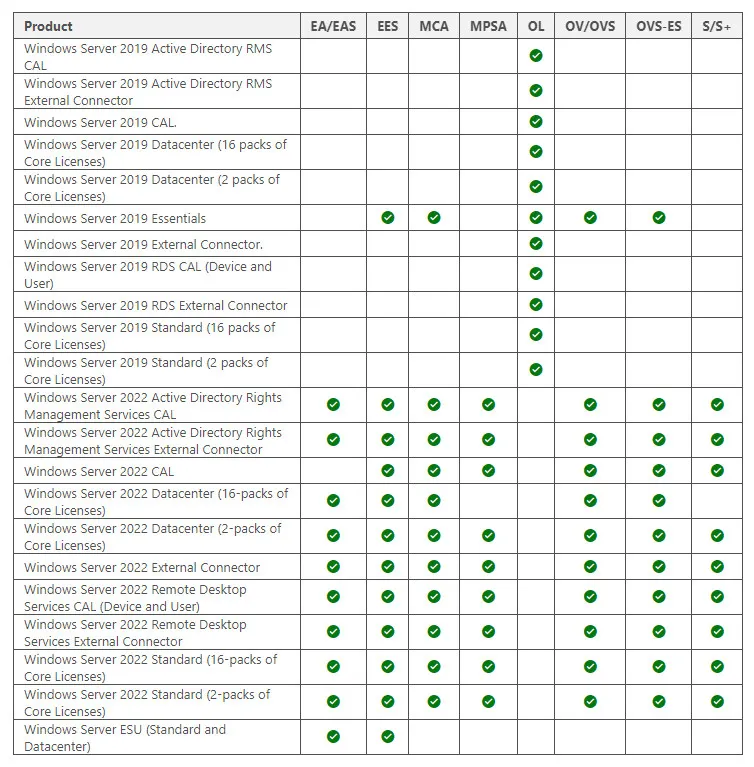Microsoft drops licensing restrictions for cloud use on Windows Server 2022
Microsoft just updated the licensing terms for its Windows Server products. It brings a big change for Windows Server 2022 clients. The product terms pages only show a table as seen below. It did not offer any description or reasoning accompanied by the table. To get more information, you must select the specific product and go through a plethora of terms.

The folks at Cloudy With a Chance of Licensing and Licensing School have decoded the in-depth terms and found three noteworthy changes:
- Removing the minimum requirement of 16 core licenses for using virtual machines or the Azure Hybrid Benefit
- Allowing customers to match the actual core count of their VMs to the licensed cores, instead of grouping them in multiples of eight
- Allowing customers who license Windows Server through a subscription from a cloud service provider to use Standard licenses with Datacenter VMs
Windows Server is now licensed per physical core. With the Flexible Virtualization plan, customers can license the number of cores they want to use in the virtual machines. Microsoft is also opening doors to sales of longer-term hosted solutions for better price stability. It goes up to a three-year subscription plan.
These changes are driven by Microsoft’s aim to defend its Windows Server revenue, which is facing competition from open source alternatives. Its developers even admit to Linux being used more in its own Azure servers than Windows Server. Microsoft did not share a press release about the matter, however it seems to be a direct challenge in lowering licensing costs to pose a stiffer competition to rival offerings. You can learn more about the licensing terms here.
Leave a Reply